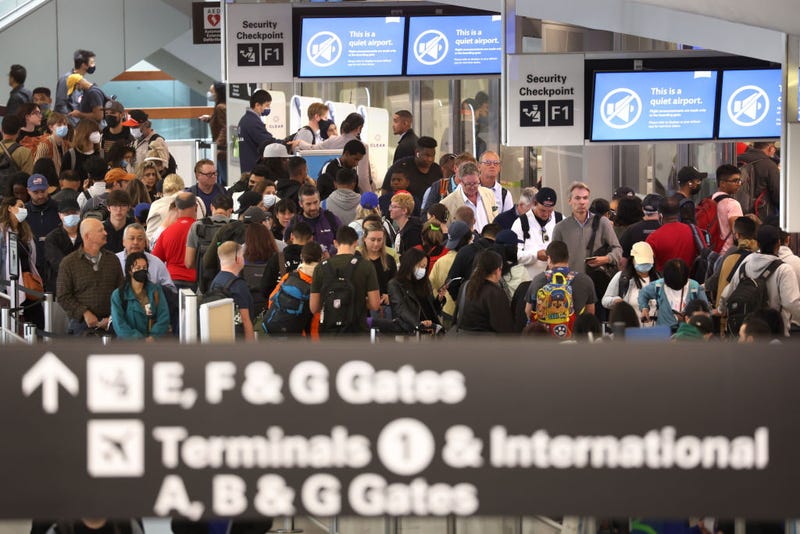
Airports were jam packed this July 4th holiday weekend with some of the biggest crowds since the pandemic began as travelers faced full flights, delays and cancellations -- as expected.
Officials say about 11.3 million flyers flocked to U.S. airports during the five-day holiday weekend between Thursday and Monday.
Friday was one of the busiest travel days since the start of the pandemic two years ago, with 2.49 million people passing through security checkpoints at U.S. airports, according to the Transportation Security Administration. It was the highest checkpoint volume since Feb. 11, 2020, when 2.5 million people were screened.
"We are back to pre-pandemic checkpoint volume," tweeted TSA Public Affairs spokesperson Lisa Farbstein.
Airlines struggled to keep up with the surge in passengers, but the issues didn't quite reach the level of those that plagued the last couple long holiday weekends.
Since Thursday, airlines canceled more than 2,200 U.S. flights, and another 25,000 were delayed, the Associated Press reported citing data from tracking service Flight Aware. Saturday saw the peak of cancelations at 657 flights.
That's down considerably compared to the last holiday weekend, which saw nearly 5,000 canceled flights and more than 27,000 delayed flights over the four-day period for Juneteenth and Fathers Day. Before that, more than 2,600 flights were canceled and nearly 19,000 flights were delayed over the five-day Memorial Day weekend.
In the U.S., the rate of cancelations over the last two weeks is up 59% from the same period in 2019, according to the AP. The issues likely stem from a combination of weather, staffing shortages and air-traffic issues.
Some airlines, including Delta and Southwest, preemptively trimmed their summer flight schedules to head off cascading cancellations and prevent major disruptions as they struggle to hire new workers to meet rebounding travel demand.
Airlines have placed some of the blame on the Federal Aviation Administration, the government agency that manages the nation's airspace, which is also dealing with staffing challenges.
Transportation Secretary Pete Buttigieg has called on airlines to do more to address the ongoing issues, noting that the industry received a $54 billion bailout at the height of the pandemic.
"We sent a lot of taxpayer funding, specifically for the purpose of keeping people employed at these airlines," Buttigieg told CBS News. "And now, they need to have the people and they need to have the resources to get people where they need to go."
LISTEN on the Audacy App
Sign Up and Follow Audacy
Facebook | Twitter | Instagram

